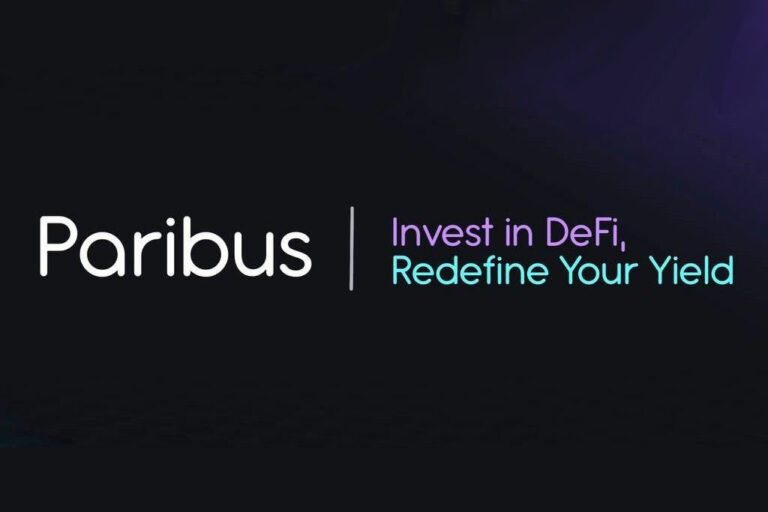
Paribus to Launch Token Rewards

Paribus, a cross-chain lending and borrowing protocol that supports interoperability in Cardano, is excited to announce the launch of its dynamic token rewards. The project has allocated 100 million PBX tokens that will be issued as rewards to borrowers on the lending platform.
Paribus estimates that the rewards should last around one month. Each loanable asset has been allocated its own PBX reward pool. Bitcoin (BTC) and Ether (ETH) have the largest reward pools, with 40 million PBX tokens each, while USDT has 20 million tokens.
The token rewards are scheduled to be released evenly across every block. For USDT, the figure is 115.74 PBX/block, while for both BTC and ETH, it stands at 231.48 PBX/block.
These rewards will be split proportionately across borrowers in each block. Therefore, they will operate dynamically depending on the number of borrowers. The fewer the borrowers, the higher their rewards will be. This means that the first to borrow will receive the highest rewards.
Borrowing against Unconventional Assets
Non-fungible tokens (NFTs) have grown to become a huge part of the crypto ecosystem. But despite how valuable they’ve shown they can be, NFTs are largely stagnant assets. In the current decentralized finance (DeFi) scene, NFT owners have limited ways of generating passive income without having to sell their assets.
Unfortunately, this is also the case for other digital assets that are not cryptocurrencies. These include virtual land and synthetic assets like LP tokens. Together with NFTs, these ‘unconventional assets’ have remained largely underutilized, leaving a staggering amount of liquidity locked and idle in users’ crypto wallets.
This is a problem that Paribus is designed to solve. The solution will provide a platform where holders of unconventional crypto assets can truly capitalize on their value. Here, users have the ability to use NFTs, virtual land, and LP tokens as loan collateral. This will allow them to unlock new levels of liquidity without having to sell their assets.
Overall, this is a much-needed solution in DeFi. But there are challenges that come with utilizing assets like NFTs in lending and borrowing mechanisms. For example, the value of NFTs is subjective, which often makes valuation and liquidation difficult. LP tokens are also subject to systemic protocol risk.
Paribus’ solution to this is to make these assets more interoperable, predictable, and reliable. The year-long turbulence within the NFT market has allowed the Parabis team to design, test, and improve advanced NFT valuation algorithms that it believes are the best-adapted solution to the volatility around NFT valuation.
These algorithms allow for a level of scaling and accuracy currently unavailable in any other solution, which will help the protocol provide loans instantly.
About Paribus
Paribus is a cross-chain lending and borrowing protocol that aims to provide a platform for users to unlock liquidity by giving them a way to derive value from traditionally stagnant assets. To do this, the protocol supports the use of unconventional assets like NFTs, virtual land, and synthetic assets, as well as conventional assets like USDT, as collateral for taking out DeFi loans.
Social Media Links: Discord, Twitter, LinkedIn.
Disclaimer: This publication is sponsored. Coinspeaker does not endorse or assume responsibility for the content, accuracy, quality, advertising, products, or other materials on this web page. Readers are advised to conduct their own research before engaging with any company mentioned. Please note that the featured information is not intended as, and shall not be understood or construed as legal, tax, investment, financial, or other advice. Nothing contained on this web page constitutes a solicitation, recommendation, endorsement, or offer by Coinspeaker or any third party service provider to buy or sell any cryptoassets or other financial instruments. Crypto assets are a high-risk investment. You should consider whether you understand the possibility of losing money due to leverage. None of the material should be considered as investment advice. Coinspeaker shall not be held liable, directly or indirectly, for any damages or losses arising from the use or reliance on any content, goods, or services featured on this web page.




